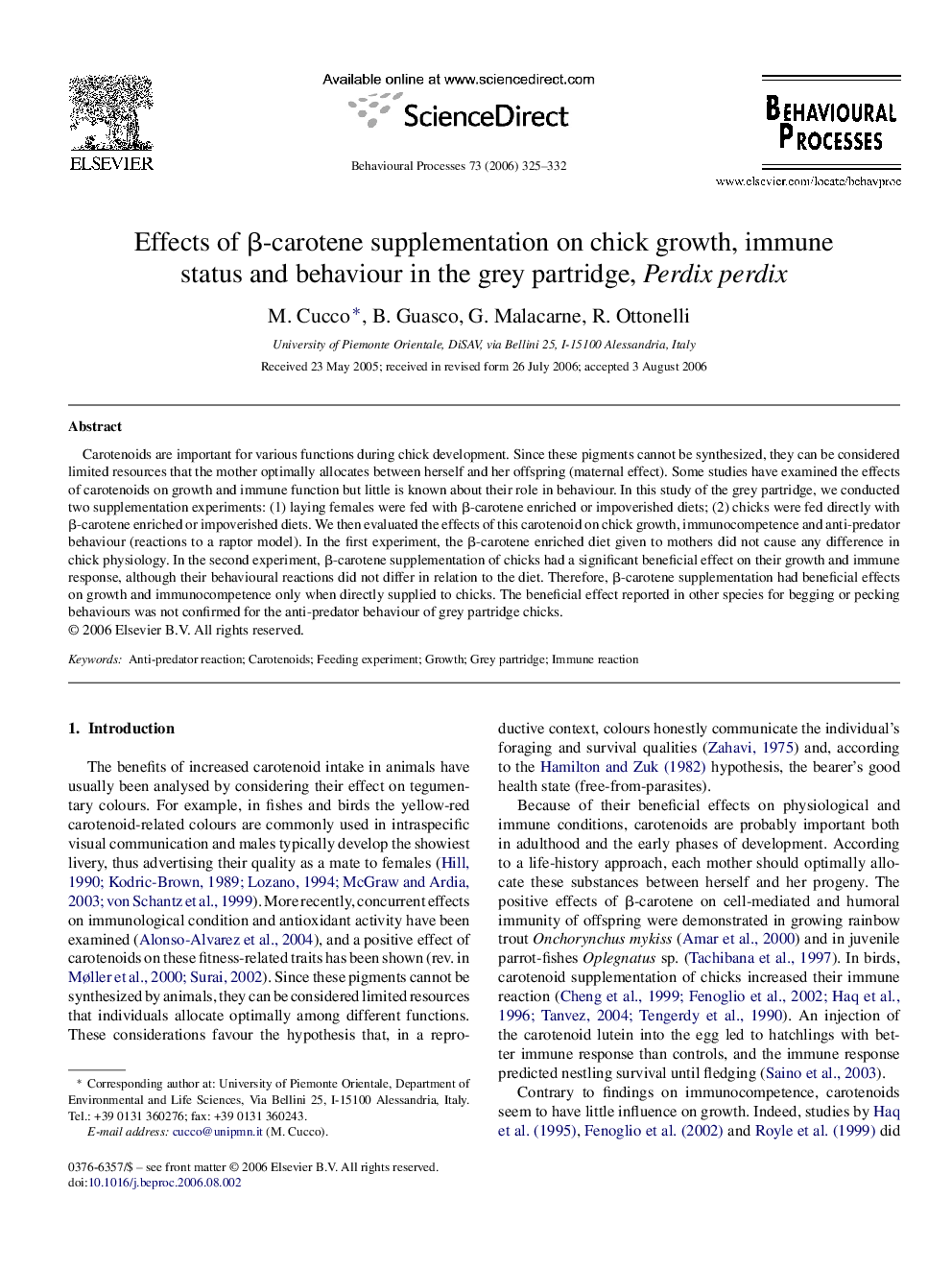| Article ID | Journal | Published Year | Pages | File Type |
|---|---|---|---|---|
| 2427794 | Behavioural Processes | 2006 | 8 Pages |
Carotenoids are important for various functions during chick development. Since these pigments cannot be synthesized, they can be considered limited resources that the mother optimally allocates between herself and her offspring (maternal effect). Some studies have examined the effects of carotenoids on growth and immune function but little is known about their role in behaviour. In this study of the grey partridge, we conducted two supplementation experiments: (1) laying females were fed with β-carotene enriched or impoverished diets; (2) chicks were fed directly with β-carotene enriched or impoverished diets. We then evaluated the effects of this carotenoid on chick growth, immunocompetence and anti-predator behaviour (reactions to a raptor model). In the first experiment, the β-carotene enriched diet given to mothers did not cause any difference in chick physiology. In the second experiment, β-carotene supplementation of chicks had a significant beneficial effect on their growth and immune response, although their behavioural reactions did not differ in relation to the diet. Therefore, β-carotene supplementation had beneficial effects on growth and immunocompetence only when directly supplied to chicks. The beneficial effect reported in other species for begging or pecking behaviours was not confirmed for the anti-predator behaviour of grey partridge chicks.
